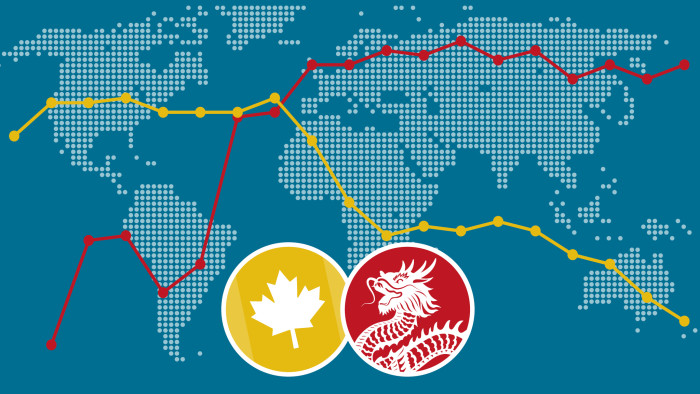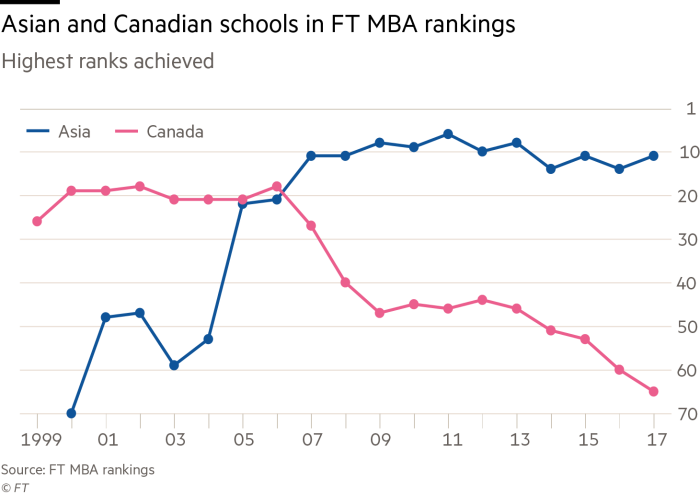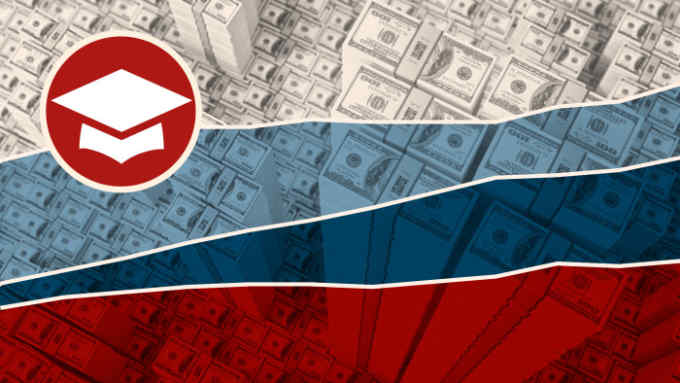Asian business schools on the rise

Roula Khalaf, Editor of the FT, selects her favourite stories in this weekly newsletter.
Many students from Asian countries opt to study for an MBA in Canada, but might they be better off closer to home? On day one, we compare Asian and Canadian schools.
Their fortunes have contrasted over the past 19 editions of the annual FT Global MBA ranking, both in terms of the numbers of ranked schools and actual ranks.
The FT published its first MBA ranking in 1999. It included the top 50 programmes worldwide, which included no Asian schools, 31 US schools, 16 from Europe and three from Canada.
Among the latter, both Toronto’s Rotman School of Management and Ivey School of Business at Western University have been ranked continuously in all 19 editions up to 2017.

Canadian schools did well in the 2001 ranking, with nine out of 100 ranked programmes. Among them, Ivey Business School was the best placed at 19. In comparison, there were only two Asian schools in 2001, including HKUST Business School at 48.
Fast-forward 16 years to the 2017 ranking, and only three Canadian schools remain among the top 100, including Rotman at 65. Twelve Asian schools were in the ranking — Ceibs was the highest at 11. In 2018, the highest new entrant is also an Asian school.
Canadian schools had an advantage two decades ago. Most passed the FT eligibility criteria for participation as they were already accredited by the US-based Association to Advance Collegiate Schools of Business, one of three international bodies recognised then by the FT, with Equis and Amba.
Because many Asian schools were founded more recently, it took longer for most to go through the accreditation process. The Indian School of Business was the first school from India to appear in the FT ranking, in 2008, while the Indian Institute of Management Calcutta was ranked in 2017.
Canadian schools’ alumni cannot compete with their US counterparts in terms of salary. Alumni from Ivey Business School are the only graduates of a Canadian school with average salaries regularly over $100,000. Alumni from Schulich School of Business at York University had a smaller average salary in 2015 at $87,000 — the last year the school was ranked — than in 2002, when it was $88,000.

In the same period the salary of Ceibs’ alumni went from $35,000 to $163,000, reflecting the shift eastward of the global economy. The school was ranked 17 and 11 in 2014 and 2015 respectively, and then 17 and 11 in 2016 and 2017. Will it climb again?
The FT global top 100 full-time courses ranking is published on January 29

Comments